To look at me today, you’d never guess what I have faced. In my naiveté, I tried to twist the narrative to my being strong-willed, empowered and grateful for my life. But I was ensnared – caught in a trap from which I didn’t know how to escape. To say I was struggling mentally and physically with what had happened to me, would be the understatement of the year.
In 2013, I was fifteen years old. Besides being a nerd who proudly ranked #2 in her class, I was heavily invested in our volleyball team. I’d been the captain the previous year and had played for five years before that. I had dreams of playing in college, and for me – in volleyball as well as life, the sky was the limit!
When most people hear the term “foodborne illness” they think of a stomach bug that lasts for a couple days. What they fail to grasp is, getting that stomach bug for just a couple of days is the absolute best scenario.
One day I was hanging with my friends, eating at a local Mexican restaurant in our hometown. Within just a few short days, I was hospitalized with a case of Escherichia coli (E. coli) O157:H7. My family understood just how serious my condition was and let my school know. My friends, teachers, and coaches came to visit me in fear that it would be the last time they saw me. One of my friends even brought the Bishop from her church to give me a blessing. I had developed hemolytic uremic syndrome (HUS), a rare condition that is associated with E. coli infection and, as a result, just about everything that could, did go wrong with my body.
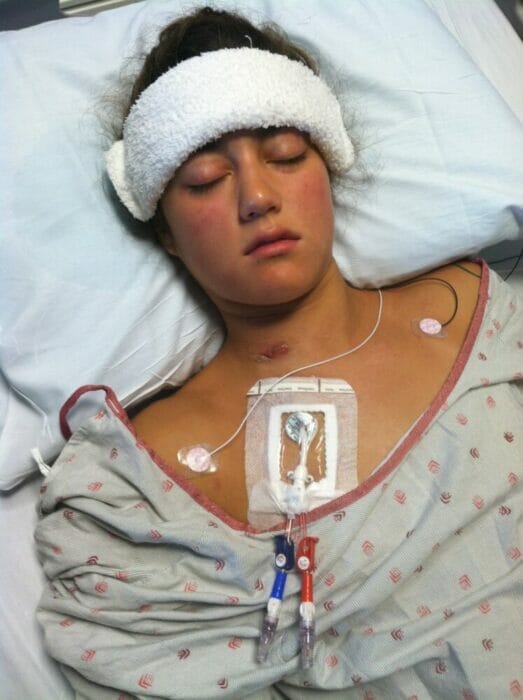
I spent the next month in the ICU … for the first two weeks I was not allowed to consume food or drink, and could only eat ice chips. My kidneys failed, I had colitis, pancreatitis, and my lungs were filled with fluid. I was on dialysis and, after acquiring pneumonia, had chest tubes that removed 3 liters of fluid from my lungs. I had brain swelling and I lost my eyesight due to optic nerve damage. To help reduce the near constant pain I was in, I was given the drug fentanyl. My body developed an addiction to it, and many times I thought that the recovery from fentanyl was as bad, if not worse, than spending a month in the hospital.
I would lie awake at night restless. I’d be sitting in class at school and feel like there were ants crawling on me. I would uncontrollably tremor, and I couldn’t regulate my body temperature. All the people in my life expressed their joy that I was recovering, which made it harder to let them know that I was still struggling.
Because of the stigma associated with addiction, in addition to what I was physically feeling, I feared that if I talked about it people would think I was a drug addict. Once I got out of the hospital, even though I was eager to return to school, my doctors advised me to take another month off and focus on recovering. But I refused.
Pushing my body to its limit, I felt so much had been taken from me and I just wanted things to feel normal again. Considering all I’d lost, I couldn’t lose my #2 ranking too! I was also a good volleyball player, but due to substantial muscle loss and overall weakness they wouldn’t let me play until I was stronger. Plus there was a significant risk that if I was hit in the head, my brain could swell again, so I was required to wear protective headgear. I worked hard to get back on the court, but my body was much weaker.
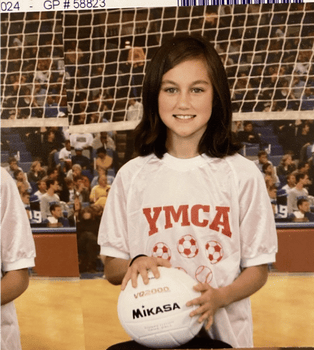
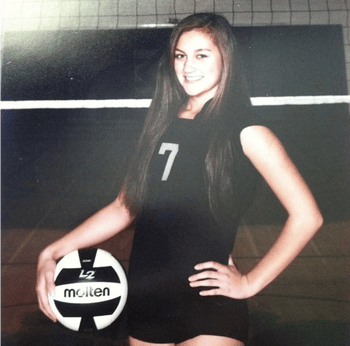
I began physical therapy to try and regain some strength. In the beginning, my entire body was sore and achy, even my hands. Because I was 20 pounds lighter none of my clothes fit me, and I felt like my body wasn’t even mine. I had to wear a fentanyl patch to help with the withdrawal symptoms. On top of all that, my teachers and classmates would awkwardly tell me they were happy I was still alive. I hated it all. I even felt betrayed by the physical therapists treating me. Their office was in the same plaza as the restaurant that made me sick, and seeing employees bringing food items into work made me angry.
“Why did this happen to me?” was the question that hung on me and wouldn’t let go. I was physically active and healthy and so I wondered why, out of the 90 people affected by this outbreak, I was the one who got the most sick. The outbreak made the news, so everyone at my high school knew why I was missing the first month of school. Nothing in my life was private and it felt like people were walking on eggshells around me. I wanted to believe that, as time went on things would feel better, but all I felt was lost and alone.
Then, to my surprise, things got worse. People would make jokes about inviting me to eat at that restaurant. My friends, who had supported me while I was hospitalized, started eating there again. I felt betrayed and couldn’t understand why people who claimed they loved me consciously made the decision to eat at the restaurant that almost killed me.
When I finally graduated, I went to college at the University of Arizona. I didn’t want my life to be about “that” anymore. I saw an opportunity for a new beginning so nobody, except a couple of my closest friends, knew about the time when I got sick. I had faced enough disappointment, and people using it to hurt me, so I went through undergrad keeping my secret.
At the beginning of my junior year I felt lost. I was chasing careers based on my academic successes, but I felt no passion for any of them. I decided to let go of expectations that I had for myself, and just start taking classes in, and talking to professors about, the subjects that held my interests. Despite running from my past for the previous 3 years, something kept pulling me back to foodborne outbreaks. It was during my junior year that I started volunteering as a student researcher in a microbiology lab that focused on studying foodborne pathogens. This opened my eyes to numerous possibilities and gave me an opportunity to learn more about what research was being done in this field.
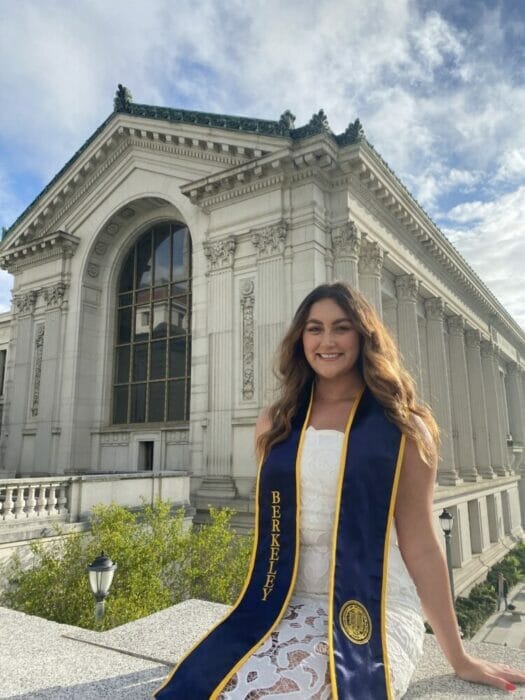
I will never forget the day that, for the first time, I was preparing plates for the lab with E. coli O157:H7. I could not believe that I was holding a micropipette filled with the organism that almost killed me. It was an empowering and emotional moment for me. It infuriated me that outbreaks were still continuing, people were still dying, and nothing had been done since the outbreak that almost ended my life. Something needed to change. Food safety practices needed improvement, surveillance of foodborne diseases needed to be enhanced, and there needed to be a voice advocating for the people who had more than just a couple days with a stomach bug. Foodborne illnesses need to be taken seriously, and there shouldn’t be a risk of death due to eating food. I left the lab that day and cried in my car on the way home because of the realization that everything had come full circle.
In my senior year I got special permission to take a graduate level course called – Student Aid for Field Epidemiology Response (SAFER). In this class, students work in a call center and interview victims of foodborne illness on behalf of the state’s health department. This experience was monumental in deciding to pursue a Master of Public Health in Epidemiology and Biostatistics. Based on what I had learned in the class and the relationships that I made, it finally felt like I was on the right track. I didn’t feel lost anymore. I knew I was doing something important and was finally surrounded by people who cared about foodborne outbreaks just as much as I did.
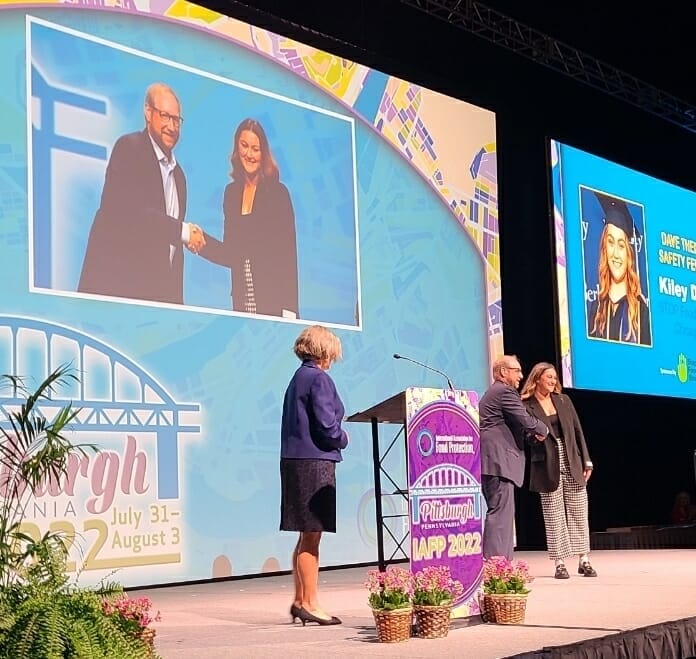
I survived the health complications following my E. coli O157 infection, but I didn’t come out of this unscathed. I really struggled with the possibility that I might be robbed of my future and a family because I ate an E. coli contaminated taco. Even so, I consider myself fortunate. As a result of brain swelling my eyes were damaged. My right eye recovered fully, but the optic nerve in the left eye remains impaired with no sign of ever coming back. Not only do I have a large blind spot, I am also colorblind, and only able to take in about 70% of the light that my right eye is able to receive.
In addition to my damaged left eye, I have chronic kidney disease and am expected to need a kidney transplant 10 to 20 years in the future. There is also a great chance that I will not be able to bear children. My nephrologist explained to me that pregnancy could potentially be too hard on my body and lead to a syndrome called HELLP, which is very similar to HUS.
Having a family is important to me, and knowing that there could potentially be many roadblocks worries me. While still in high school, I worked with a psychologist to help cope with the PTSD that developed as a response to my illness.
Not fully dealing with the trauma I faced, while being sick, caught up to me over the years. I suffered greatly with depression and anxiety throughout my undergraduate and Master’s program. I was aware that studying public health would probably trigger an emotional response from time to time, and it did. But what I was completely unprepared for was the total disregard from people in my public health graduate program not having a care or even the slightest thought about foodborne outbreaks.
I realize that everyone has different research interests, but I often felt judged and unsupported by other students, and even faculty, for the research choices that were personally important to me. When a professor asked me to speak in class about my experience with HUS and E. coli, another student felt that I was only doing so to become the professor’s “favorite” student. In fact, he actually said, “Maybe I should tell professor that I shit myself so I become his favorite.” Despite explaining to the class the experience of being 15-years-old and having E. coli O157 and HUS, the illness that almost killed me was reduced to something so vulgar and insensitive.
Moments like this made me want to change my research to something more neutral and something that I couldn’t be hurt by, but in the end, that’s why I stuck with it. People don’t get it – they think by ignoring it or making fun of it, it won’t touch them. But I know otherwise. So, I sought out opportunities with like-minded people outside of my department. There wasn’t a class on foodborne diseases, so a professor and I worked on an independent research project together. We both learned more about foodborne diseases from a microbial, epidemiological, and one health perspective.
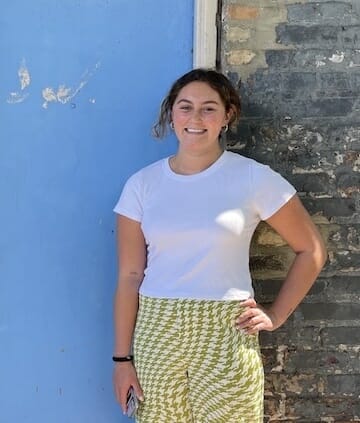
When I was fifteen years old my life changed forever. This experience not only physically dimmed my vision, but my outlook on life. But that’s not the end of the story.
Today I embrace my past and hope to use what has happened to me as a catalyst to enact the change that I want to see in how this country handles and thinks about foodborne outbreaks. I am aiming to be a foodborne disease epidemiologist and advocate for food safety, and I know that one day I’ll at least be that.
Who knows? The sky’s the limit!



